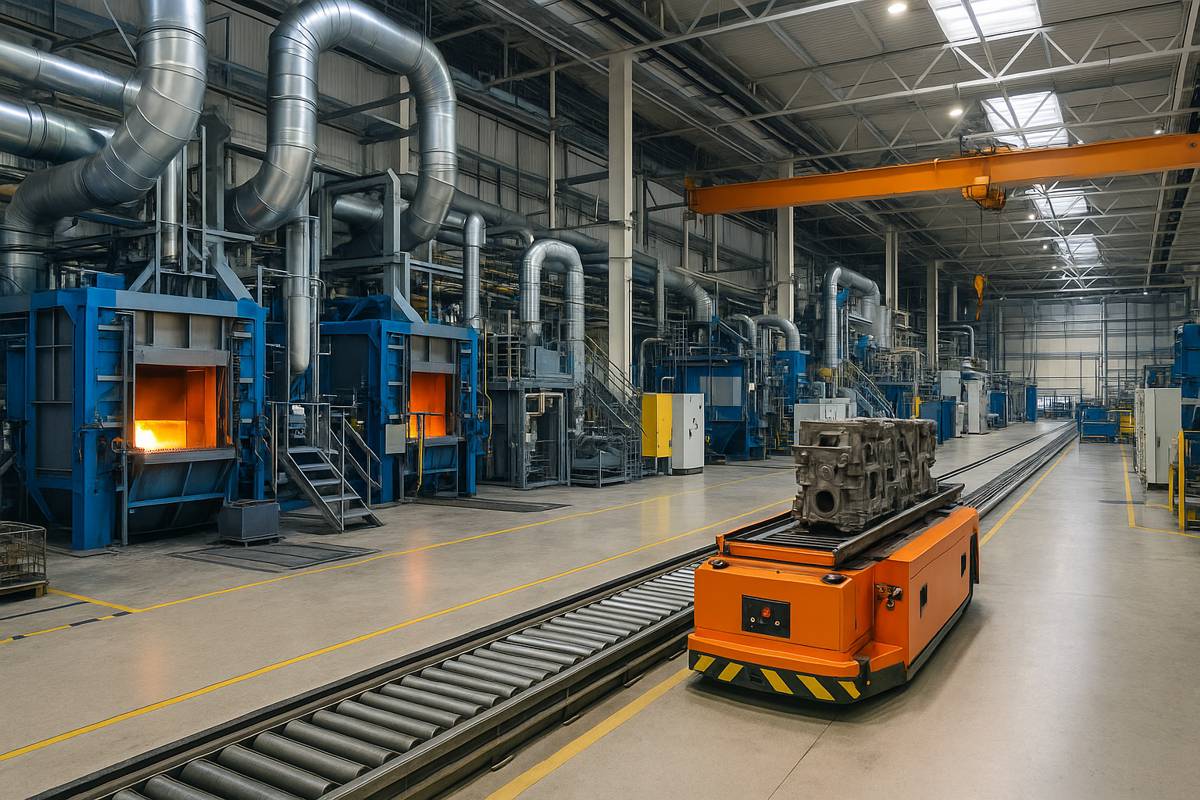Volvo Powers Ahead with CarbonSmart Net-Zero Manufacturing
Volvo Group is shifting gears on the road to carbon neutrality with an ambitious project that’s caught the attention of the European Commission. The company’s Skövde engine plant in Sweden has secured a conditional grant of up to €49 million from the EU Innovation Fund to supercharge its CarbonSmart Factory initiative, also known as SPACE. This cutting-edge programme is designed to radically reduce emissions and lead the charge toward net-zero heavy manufacturing.
The plant, which plays a key role in Volvo’s powertrain production, is about to undergo a deep green transformation. At the heart of the SPACE project is a commitment to electrifying industrial processes and applying artificial intelligence to optimise energy use. Rickard Lundberg, Vice President of Powertrain Production at the Skövde Plant, put it succinctly: “We transition towards sustainable foundry operations by electrifying key processes and integrating AI technologies, reducing CO₂ emissions by 88% from our manufacturing process. This project is a vital part of Volvo Group’s journey towards net-zero emissions.”
Decarbonising the Foundry: How Volvo Is Doing It
Volvo isn’t just tweaking existing systems. It’s overhauling how industrial energy is sourced, stored, and consumed. The SPACE project aims to create a fully decarbonised foundry operation, replacing traditional fossil-fuel-based systems with a suite of innovative technologies:
- Electric Furnaces: These will be powered entirely by green electricity, replacing older gas-fired equipment.
- Hydrogen Integration: Propane, a fossil-based gas, will be swapped for green hydrogen as a clean-burning alternative.
- Heat Recovery: Advanced thermal systems will capture waste heat and reuse it across the plant, significantly reducing energy demand.
- AI Energy Management: Artificial intelligence will optimise energy distribution in real time, ensuring peak efficiency and minimum waste.
These upgrades aren’t just about lowering emissions. They also improve operational flexibility, reduce reliance on the grid during high-demand periods, and set a new benchmark for industrial sustainability.
The Power of Smart Storage: Three Innovative Battery Systems
One of the standout features of the CarbonSmart initiative is its pioneering approach to energy storage. Rather than rely solely on traditional grid systems, Volvo is implementing three unique energy storage solutions to help the plant maintain energy stability:
- Iron Battery: This clever system uses the foundry’s existing furnaces to store surplus energy, which can then be tapped during peak demand.
- Hydrogen Battery: By producing and storing green hydrogen onsite, the plant gains a means of seasonal energy storage — a solution particularly useful for northern climates with varied daylight hours.
- Water Battery: Using hot water as an energy buffer, this system helps with pre-heating and melting processes, further trimming the plant’s energy needs.
Together, these systems will help balance consumption and production across daily and seasonal cycles, offering a level of resilience that traditional power infrastructure can’t always provide.
Collaborations Fuel Innovation
The CarbonSmart Factory isn’t going it alone. It’s backed by a strong support network, including Skövde Energi and AI Sweden, two key players that helped conduct the project’s pre-study. That foundational work was funded through Vinnova and Advanced Digitalization, Sweden’s innovation agencies focused on accelerating the green and digital transitions.
These partnerships are proving vital, not only for validating the technical feasibility of the solutions but also for ensuring that best-in-class digital practices are baked into every layer of the transformation.
A Beacon for Heavy Industry Across Europe
The significance of this project extends far beyond Volvo’s production lines. It serves as a demonstrator for how traditional heavy industries can evolve and thrive in a low-carbon economy. The SPACE project is also in step with the EU’s broader Green Deal objectives and its Fit for 55 package, which calls for a 55% reduction in greenhouse gas emissions by 2030.
Volvo’s move reflects a growing trend in which OEMs are not only decarbonising their vehicles but also the entire lifecycle of production. As industry pressure mounts to clean up every step of the supply chain, this kind of leadership could well shape future EU regulations and industrial practices.
A Vote of Confidence from the EU
Getting the nod from the European Commission’s Innovation Fund is no small feat. The Fund focuses on large-scale decarbonisation projects that offer scalable impact and a strong return on public investment. That Volvo’s Skövde plant made the cut is a testament to both the project’s technical credibility and its alignment with Europe’s clean industrial strategy.
The conditional funding of €49 million will help de-risk the project, attract further investment, and speed up implementation. As the Innovation Fund continues to support transformative technologies, Volvo’s SPACE initiative will stand as a litmus test for what’s possible when legacy manufacturing meets cutting-edge sustainability thinking.
Leading the Pack into a Greener Future
This isn’t just about one factory. The innovations piloted at Skövde will ripple out across Volvo Group’s global operations and serve as a model for others looking to walk the net-zero talk. With regulatory frameworks tightening and stakeholder expectations rising, companies that fail to act could soon find themselves playing catch-up.
By moving swiftly and boldly, Volvo is not only decarbonising its own processes but also redefining what’s possible in one of the world’s most energy-intensive sectors. The CarbonSmart Factory stands as a symbol of a broader industrial awakening — one that places sustainability, efficiency, and innovation at the core of manufacturing.
Forging a Sustainable Legacy
Volvo’s SPACE initiative shows that the future of heavy manufacturing doesn’t have to be dirty or slow to change. With the right mix of funding, technology, and ambition, even the most traditional industrial sectors can reimagine themselves for the 21st century.
As more companies follow Volvo’s lead, the path to a greener, smarter, and more resilient industrial landscape becomes clearer. And that’s something worth celebrating.





























